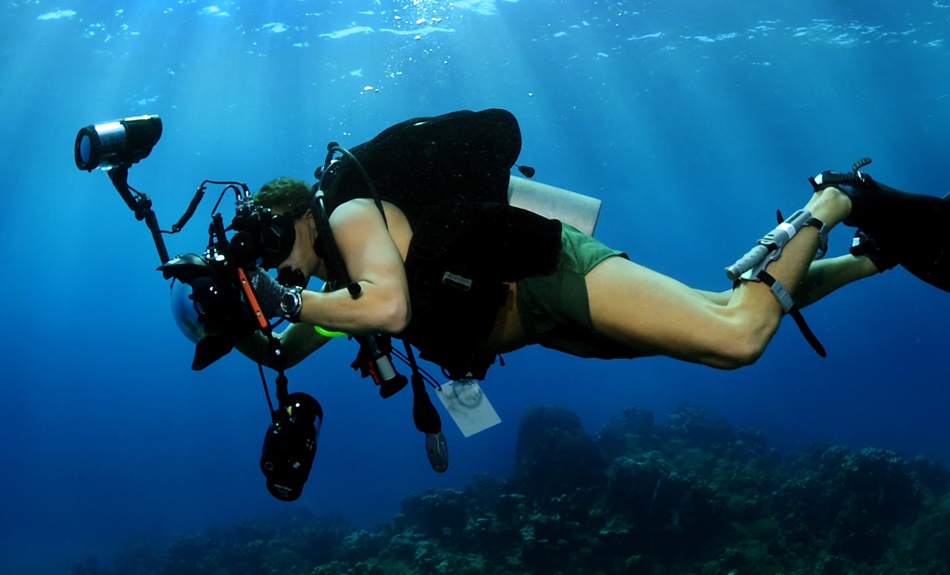Before we even consider starting an adventure in scuba diving we have an good idea of what gear is needed. What is often overlooked is the scuba dive light.
We may not know the specific names or really understand their use or how they fit together, but many of us have been able to visualize a diver since long before we took our first breaths underwater. Things like tanks, regulators, bcds, wetsuits or drysuits are fairly unsurprising elements of basic dive gear. When it comes to accessories, well, I think most of us envisioned Crocodile Dundee-style knives.

And while a cutting device is a vital component of your safety equipment on every dive; what many don’t realize is that a dive light is also critical and not just on night dives. In reduced visibility and on deep dives light will be filtered out fairly quickly. So for safety and enjoyment of such dives, just as on a night dive or dusk/dawn dive it is prudent to have a light on at all times during the dives. Lights bring back colour that is lost as we descend. They allow us to peer into cracks and crevices. For divers with and without cameras this means we see more and we see it in all its vibrant best. Lights also make signalling buddies easier, especially in darker waters. Check out passive light communication – an easy ‘ok’ without stopping and turning around if you are diving single file. This is particularly useful on wall dives, drift dives, in wrecks or caves (where you want reliable, powerful lights for numerous reasons).
So the short answer is yes, you probably need a dive light. Additionally, consider in situations in which it is critical to have a functioning light (night dives, wrecks, caves, etc) you should have at LEAST one back up light. Things happen. You may drop or damage your light at some point on the dive. It is standard practice to carry two back-up lights in a situation in which you are relying on them and do not have immediate access to the surface.
In recent years, powerful, reliable, rechargeable and relatively robust and compact lights have become the norm. They have progressed leaps and bounds in technology from the large, expensive, delicate lights of even 5-10 years ago. No longer is it necessary to haul heavy c-cell batteries or large battery canisters on dive trips in order to have enough power for the duration.